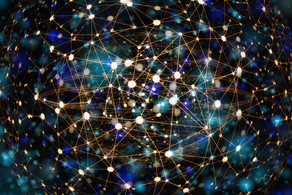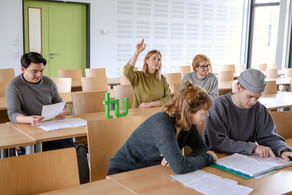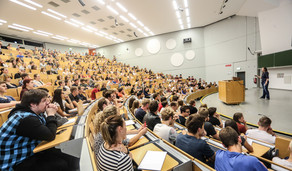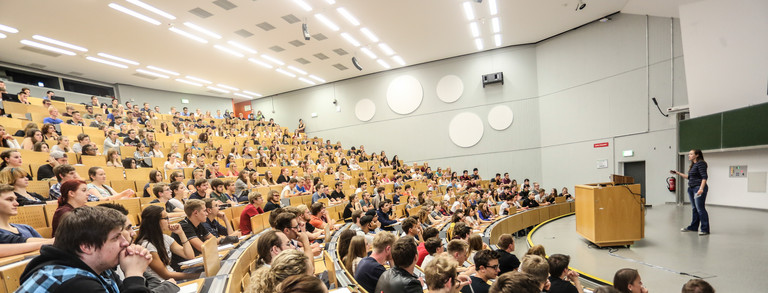AI Colloquium
The AI Colloquium is a series of lectures dedicated to cutting-edge research in the field of machine learning and artificial intelligence, coorganized by the Lamarr Institute for Machine Learning and Artificial Intelligence (Lamarr Institute), the Research Center Trustworthy Data Science and Security (RC Trust), and the Center for Data Science & Simulation at TU Dortmund University (DoDas).
Programme
Distinguished researchers deliver captivating lectures followed by vibrant discussions. However, unlike traditional colloquia, the AI Colloquium prioritizes interactive dialogue, fostering international collaboration. Conducted primarily in English, these 90-minute sessions feature hour-long lectures and 30-minute Q&A sessions. Join every Thursday at 10 AM c.t. for a stimulating exploration of cutting-edge topics. Whether in-person at our Lecture Room on Fraunhofer Strasse 25 or via Zoom, our hybrid format ensures accessibility for all.
| Day (usually) | Thursday |
| Start and end time | 10 AM c.t. - 12 AM |
| Duration of Presentation | 60 Minutes |
| Location (usually) | Lecture Room 303 3. Floor Fraunhofer Strasse 25 Dortmund |
Upcomming Events
On finding what you’re (not) looking for: prospects and challenges for AI-driven discovery
- Lamarr
- Ethics & Philosophy
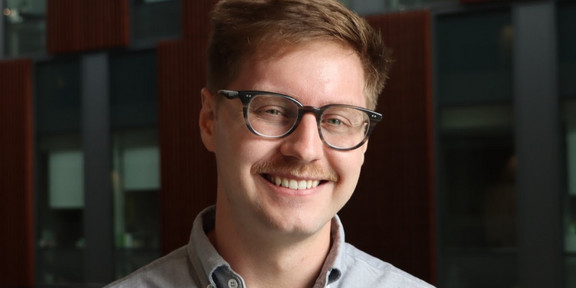
Abstract:
Recent high-profile scientific achievements by machine learning (ML) and especially deep learning (DL) systems have reinvigorated interest in ML for automated scientific discovery (e.g., Wang et al. 2023). Much of this work is motivated by the thought that DL methods might facilitate the efficient discovery of phenomena, hypotheses, or even models or theories more efficiently than traditional, theory-driven approaches to discovery. This talk considers some of the more specific obstacles to automated, DL-driven discovery in frontier science, focusing on gravitational-wave astrophysics (GWA) as a representative case study. In the first part of the talk, we argue that despite these efforts prospects for DL-driven discovery in GWA remain uncertain. In the second part, we advocate a shift in focus towards the ways DL can be used to augment or enhance existing discovery methods, and the epistemic virtues and vices associated with these uses. We argue that the primary epistemic virtue of many such uses is to decrease opportunity costs associated with investigating puzzling or anomalous signals, and that the right framework for evaluating these uses comes from philosophical work on pursuitworthiness.
How to attend
If you are interested in participating online, please register via the following form: https://forms.microsoft.com/r/W3whw0ac3B. If you would like to attend in person, please send an e-mail to udnn.httu-dortmundde.
This lecture is a special edition of the AI Colloquium at TU Dortmund University. This lecture series will investigate fundamental issues in AI from the vantage point of philosophy of science, which includes topics such as the transparency and interpretability of AI within scientific research, as well as the impact of AI on scientific understanding and explanation.
Prof. Dr. André Curtis Trudel
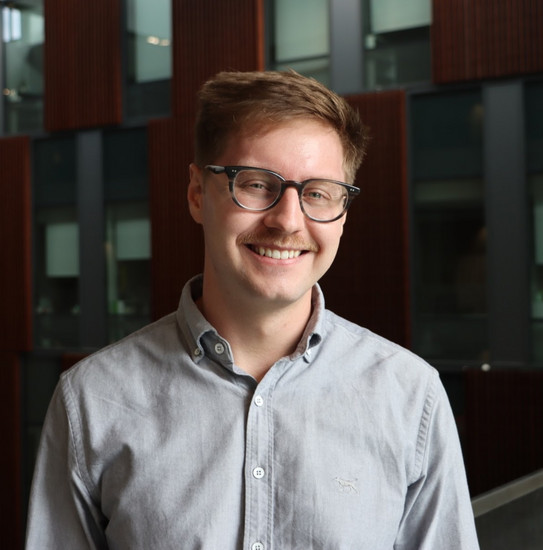
Bio: André Curtis Trudel is assistant professor at the University of Cincinnati. Before that, he was a Postdoc on the Philosophy of Contemporary and Future Science and a Fellow in the Hong Kong Catastrophic Risk Centre. And before that, he was a graduate student at Ohio State.
Past Events
On finding what you’re (not) looking for: prospects and challenges for AI-driven discovery
- Lamarr
- Ethics & Philosophy

Abstract:
Recent high-profile scientific achievements by machine learning (ML) and especially deep learning (DL) systems have reinvigorated interest in ML for automated scientific discovery (e.g., Wang et al. 2023). Much of this work is motivated by the thought that DL methods might facilitate the efficient discovery of phenomena, hypotheses, or even models or theories more efficiently than traditional, theory-driven approaches to discovery. This talk considers some of the more specific obstacles to automated, DL-driven discovery in frontier science, focusing on gravitational-wave astrophysics (GWA) as a representative case study. In the first part of the talk, we argue that despite these efforts prospects for DL-driven discovery in GWA remain uncertain. In the second part, we advocate a shift in focus towards the ways DL can be used to augment or enhance existing discovery methods, and the epistemic virtues and vices associated with these uses. We argue that the primary epistemic virtue of many such uses is to decrease opportunity costs associated with investigating puzzling or anomalous signals, and that the right framework for evaluating these uses comes from philosophical work on pursuitworthiness.
How to attend
If you are interested in participating online, please register via the following form: https://forms.microsoft.com/r/W3whw0ac3B. If you would like to attend in person, please send an e-mail to udnn.httu-dortmundde.
This lecture is a special edition of the AI Colloquium at TU Dortmund University. This lecture series will investigate fundamental issues in AI from the vantage point of philosophy of science, which includes topics such as the transparency and interpretability of AI within scientific research, as well as the impact of AI on scientific understanding and explanation.
Prof. Dr. André Curtis Trudel

Bio: André Curtis Trudel is assistant professor at the University of Cincinnati. Before that, he was a Postdoc on the Philosophy of Contemporary and Future Science and a Fellow in the Hong Kong Catastrophic Risk Centre. And before that, he was a graduate student at Ohio State.
On finding what you’re (not) looking for: prospects and challenges for AI-driven discovery
- Lamarr
- Ethics & Philosophy

Abstract:
Recent high-profile scientific achievements by machine learning (ML) and especially deep learning (DL) systems have reinvigorated interest in ML for automated scientific discovery (e.g., Wang et al. 2023). Much of this work is motivated by the thought that DL methods might facilitate the efficient discovery of phenomena, hypotheses, or even models or theories more efficiently than traditional, theory-driven approaches to discovery. This talk considers some of the more specific obstacles to automated, DL-driven discovery in frontier science, focusing on gravitational-wave astrophysics (GWA) as a representative case study. In the first part of the talk, we argue that despite these efforts prospects for DL-driven discovery in GWA remain uncertain. In the second part, we advocate a shift in focus towards the ways DL can be used to augment or enhance existing discovery methods, and the epistemic virtues and vices associated with these uses. We argue that the primary epistemic virtue of many such uses is to decrease opportunity costs associated with investigating puzzling or anomalous signals, and that the right framework for evaluating these uses comes from philosophical work on pursuitworthiness.
How to attend
If you are interested in participating online, please register via the following form: https://forms.microsoft.com/r/W3whw0ac3B. If you would like to attend in person, please send an e-mail to udnn.httu-dortmundde.
This lecture is a special edition of the AI Colloquium at TU Dortmund University. This lecture series will investigate fundamental issues in AI from the vantage point of philosophy of science, which includes topics such as the transparency and interpretability of AI within scientific research, as well as the impact of AI on scientific understanding and explanation.
Prof. Dr. André Curtis Trudel

Bio: André Curtis Trudel is assistant professor at the University of Cincinnati. Before that, he was a Postdoc on the Philosophy of Contemporary and Future Science and a Fellow in the Hong Kong Catastrophic Risk Centre. And before that, he was a graduate student at Ohio State.


